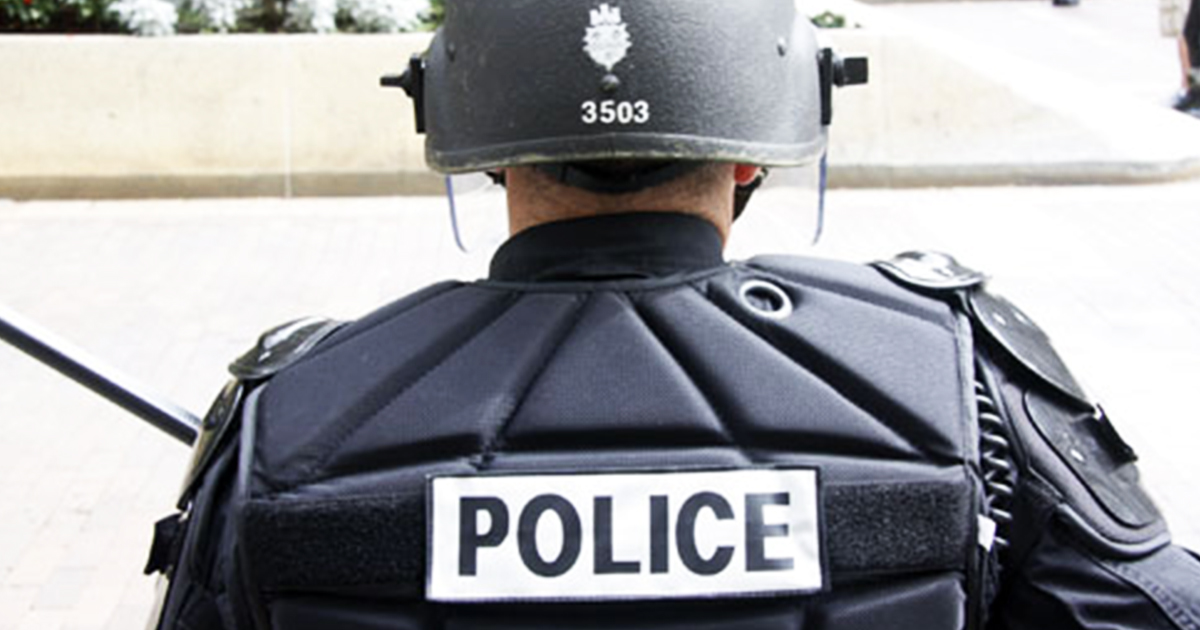Black Cops Have a Message About Police Brutality for President Donald Trump

By:
Following a recent speech by President Donald Trump during which he appeared to endorse police brutality, prominent black law enforcement officials are speaking out.
In what the White House now claims was a joke, Trump told a group of police officers in Long Island, New York on July 28 that they shouldn't be "too nice" to the "thugs" they throw in the back of "paddy wagons," and implied police should allow their heads to slam into the police car.
The comments received huge backlash on social media.
Police officers and city workers across the country said that Trump's comments harm their efforts to build relationships with communities. In a statement sent to CNN, Maya Wiley, the chairwoman of New York City's Civilian Complaint Review Board called the president's remarks "dangerous."
"President Trump's comments fly in the face of the responsibility our city's officers display in the line of duty," Maya Wiley, chairwoman of the Civilian Complaint Review Board, said in the statement. "But for many communities in our city, President Trump's comments only (stoke) fears of interacting with officers. President Trump's speech today was shameful, dangerous, and damages the progress our city has made toward improving police-community relations."
In a Tuesday address to the National Organization of Black Law Enforcement Executives (NOBLE) in Atlanta, Attorney General Jeff Sessions addressed the lack of trust black Americans have in the police, without directly talking about Trump's remarks.
"Most of the country continues to hold police in high regard, but in that same poll, only 30 percent of African-Americans say that they have confidence in police," he said. "In the last three years, that number has dropped by five points. That means African-Americans have the least trust in police of any group in the United States." At the conclusion of his remarks, Sessions said that black police officers are important for building relationships in black communities.
"You, more than perhaps any other law enforcement organization, represent crucial ambassadors to some of the communities that trust law enforcement the least," he said.
People on Twitter pointed out that the speech seemed uncomfortable in the wake of Trump's controversial remarks about brutality.
The Associated Press reported that Sessions then spoke with NOBLE leadership and repeated the White House's line that the president was merely joking in his comments about police brutality.
However, President of NOBLE and Seattle Assistant Police Chief Perry Tarrant said it doesn't matter whether it was a joke.
"Whether intentional or unintentional, it was heard around the country by the folks, by the very communities that we're trying to build relationships with and I believe it had an impact," he told reporters.
Clarence E. Cox III, the national first vice president of NOBLE and a former police chief, said that racial discrimination and police brutality are real problems, and black police officers face unique challenges.
"We live in some of the same communities that are affected by this disparate treatment," Cox told reporters, according to the Associated Press. "We go to church in those neighborhoods. We go to the barbershops. Certain things people don't realize: It's really hard being black and being a police officer when these things happen."
On Wednesday, Tarrant responded to a request for comment from ATTN: by expanding on "jokes" like Trump's can damage trust between officers and their communities.
"Careless commentary, levity or not, from the President or anyone in high office detracts from efforts underway building trust. The audience hearing the remarks is greater than those in the room," he said via email. "Those that suspect the police will take advantage if given an opportunity, had that notion validated. We must me thoughtful not to pull the rug from under the 800,000 men and women doing difficult work."
The White House may claim Trump was joking about increasing police brutality, but Sessions is setting a "tough on crime" policy in stone.
 Todd Lucier/Flickr - flic.kr
Todd Lucier/Flickr - flic.kr
In February, Sessions said that his Department of Justice will "pull back" on civil rights investigations on police misconduct and brutality. President Barack Obama's administration opened 25 investigations on police departments, NBC News reported at the time.
"We need, so far as we can, to help police departments get better, not diminish their effectiveness, and I'm afraid we've done some of that," Sessions said while announcing the guidance on February 28. He encouraged a national return to tough-on-crime policies.
"We need to return to the ideas that got us here, the ideas that reduce crime and stay on it," he said. "Maybe we got a bit overconfident when we've seen the crime rate decline so steadily for so long,"
In May, Sessions sent a memo directing federal prosecutors to seek charges for the "most serious, readily provable offense in every case," while seeking maximum sentences with few exceptions.
Thirty current and former bipartisan state prosecutors sent an open letter to Sessions, released by the organization Fair and Just Prosecution, pushing back on the guidance.
"The increased use of mandatory minimum sentences will necessarily expand the federal prison population and inflate federal spending on incarceration," they wrote. "There is a human cost as well. Instead of providing people who commit low-level drug offenses or who are struggling with mental illness with treatment, support and rehabilitation programs, the policy will subject them to decades of incarceration."
